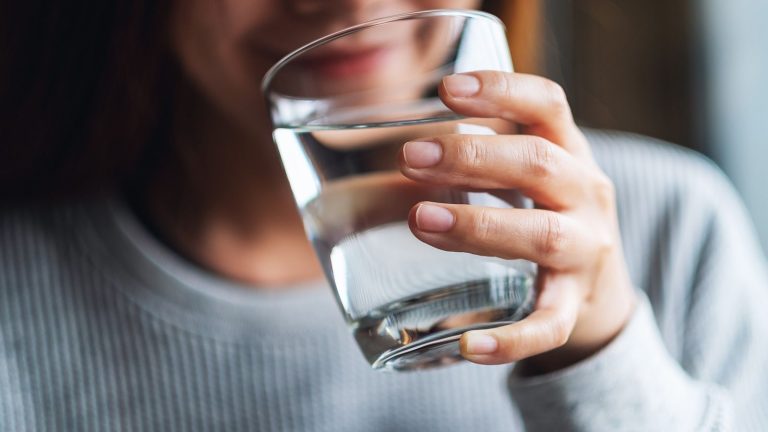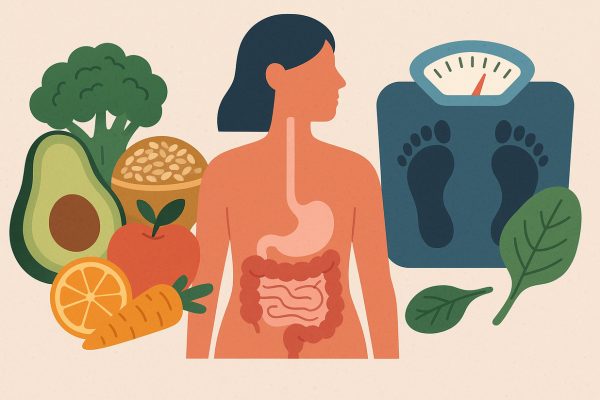The Importance of Hydration in Daily Life
Water is the foundation of life and essential for every aspect of our health. In our daily activities, proper hydration not only aids digestion but also helps regulate the body. When there is enough water in our system, nutrients are transported more quickly to cells, resulting in a more efficient metabolism.
Hydration affects not only physical health but also mental aspects. Proper hydration enables clearer thinking and higher energy levels, which are essential for a productive day. By drinking enough water, we can avoid dehydration, which may lead to fatigue and other bodily issues.
Understanding the importance of hydration is the first step toward a healthier lifestyle. With every glass of water we drink, we show ourselves that we value our health and are ready to invest in its long-term benefits.
How Metabolism Works
Metabolism is the process by which the body converts food and drinks into energy. It is a complex process involving various chemical reactions within cells. The metabolic rate is the speed at which this process occurs, and it is directly affected by hydration.
When the body has sufficient water, metabolic processes run more efficiently. Water is necessary for enzymatic reactions that circulate nutrients throughout the body. For example, digesting carbohydrates and fats into energy requires proper hydration to proceed quickly and smoothly.
A proper metabolism is not just about energy. It is also crucial for weight control and maintaining hormonal balance. When metabolism is slow, it can lead to fat accumulation and a decrease in overall energy levels.
The Effect of Hydration on Energy Production
The body’s energy production depends on the efficiency of metabolic processes. When there is enough water in the system, the conversion of food into energy is faster and more effective. Hydration helps increase oxygen delivery to cells, which is vital for cellular respiration.
Cellular respiration is the process by which cells extract energy from glucose, a primary energy source, using oxygen. Water helps maintain the proper temperature in the body and allows enzymes to function optimally, speeding up energy release.
People who are well-hydrated typically have higher endurance and recover faster after physical activity. Therefore, proper water intake helps maintain high energy levels throughout the day, which is crucial for active individuals and athletes.
Hydration and Fat Metabolism
Proper hydration is also essential for fat metabolism. When the body has enough water, fat is broken down more quickly and used as fuel. Water helps transport fatty acids to the cells, where they are consumed for energy.
In conditions of dehydration, fat metabolism may slow down, resulting in inefficient use of stored fat. This can lead to weight gain and other metabolic disorders. Therefore, regular water intake is important to ensure the body is balanced for optimal fat metabolism.
People who maintain good hydration often experience faster fat loss and more effective energy use. Adequate water also aids in digestion and the elimination of toxins, which is important for weight regulation and overall metabolic health.
Hydration and Muscle Performance
Water is not only important for fat metabolism but also for muscle performance. During physical activity, muscles require adequate hydration to work effectively. When dehydrated, muscle glycogen reserves deplete quickly, resulting in fatigue and reduced performance.
Athletes and those who exercise regularly are always encouraged to drink water before, during, and after a workout. Proper hydration enables faster muscle recovery and higher endurance. Muscle function depends on electrolyte balance, which is better maintained when the body is well-hydrated.
Additionally, hydration helps lower the risk of muscle cramps and strains. When there is enough water, the nutrients necessary for muscle performance are more easily absorbed, leading to better overall exercise efficiency and daily performance.
Proper Hydration for Everyday Life
Drinking enough water is a simple step but has a significant impact on health. Experts suggest that a person should drink at least eight glasses of water per day. Proper hydration aids all metabolic processes, including digestion, circulation, and temperature regulation.
On active days or during hot weather, it is important to increase water intake to prevent dehydration. Sports drinks can also be an alternative, especially if you need electrolytes, but plain water is generally best for everyday hydration.
Monitoring your hydration status is a good habit. Try carrying a reusable water bottle wherever you go and track how much you drink. Regular water intake helps not only with metabolism but also strengthens the immune system and improves overall energy levels.
The Effect of Hydration on Digestive Health
Proper hydration has a direct impact on digestive health. When there is enough water, the body can more easily digest and absorb nutrients from food. Water helps soften stool, making it easier to pass and reducing the risk of constipation.
Water is also crucial in maintaining the pH balance in the stomach. The proper pH balance helps create an optimal environment for enzymes that speed up digestion. Without sufficient water, digestive enzymes may not function properly, leading to problems like bloating and indigestion.
Regular water intake helps maintain the optimal condition of your digestive tract, leading to smoother movement of food, better nutrient absorption, and faster elimination of waste products.
Common Misconceptions About Hydration
Many misconceptions exist regarding proper water intake. One idea is that drinking water dramatically speeds up metabolism, even though there are limits to its benefits. While hydration is essential, it is only one part of the overall metabolic process.
Another belief is that drinking too much water can cause water intoxication. While it is true that the body has a limit to how much water it can process, the average person is unlikely to experience this under normal circumstances. The right balance depends on daily needs, usually met by drinking 2 to 3 liters of water per day, depending on activity levels and climate.
The common notion that you must drink exactly 8 glasses of water per day may not apply to everyone. Water needs vary based on age, weight, and level of physical activity. It is important to monitor and adjust your water intake based on your personal needs.
The Impact of Hydration on Metabolism and Energy Levels
Metabolism is the process by which the body extracts energy from food. Proper hydration helps speed up metabolic processes by improving circulation and nutrient delivery to cells. When there is enough water, food is converted into energy more quickly and efficiently, resulting in higher energy levels throughout the day.
During physical activity, maintaining hydration is crucial to prevent a slowdown in metabolism. Dehydration can lead to a decreased metabolic rate, which weakens performance and increases fatigue. By drinking enough water, the body maintains an optimum metabolic rate necessary for rapid energy production.
Proper hydration not only helps boost energy levels but also regulates appetite. When the body is well-hydrated, you are more likely to recognize natural hunger and fullness signals, resulting in better calorie control and avoidance of overeating.
Using Natural Supplements for Hydration
In addition to regular water intake, some natural supplements can help maintain proper hydration. Electrolyte supplements, such as potassium and magnesium, are important for people who engage in intense physical activity or are in hot conditions. They help regulate fluid balance and prevent dehydration.
Natural drinks containing electrolytes, such as coconut water, are known for their high potassium content. Coconut water is a natural and nutritious alternative to commercial sports drinks, which often contain high amounts of sugar. These natural supplements not only provide additional nutrients but also help maintain optimal hydration.
Adding natural supplements to your daily routine not only improves hydration but also boosts overall energy and recovery. Try these, especially during exercise or in hot climates, to ensure your electrolyte levels remain sufficient and your body continues to perform well.
Building Healthy Hydration Habits
Developing healthy hydration habits is an essential part of daily health. Practicing regular water drinking throughout the day helps maintain the proper fluid balance in the body. It is important to establish a routine of drinking water, whether in the morning, at lunch, or before bed.
Using a reusable water bottle is a great way to stay conscious of your water intake. Carrying it everywhere ensures you won’t forget to drink water and makes it easier to measure how much you’re consuming. Establishing the habit of refilling your bottle helps prevent dehydration even when busy with work or exercise.
In addition to regular water drinking, it is important to monitor your hydration status. You can check for dehydration by the color of your urine—if it is dark, it is an indication of dehydration. Developing this habit helps maintain optimal health and ensures that your body is always ready for any task.




